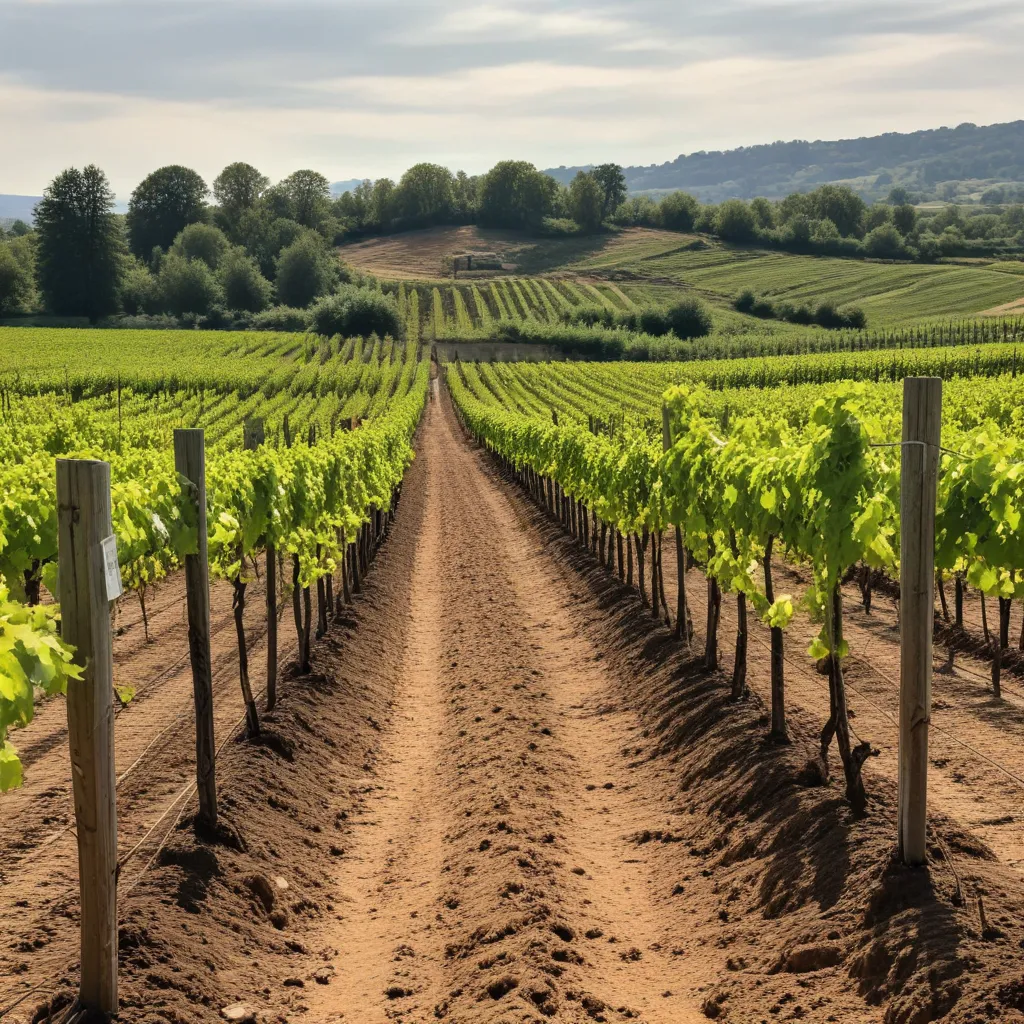
At the Wine Garden Inn, we believe that great wines are born not just in the cellar, but in the very soils and microclimates where our grapes are nurtured. The concept of terroir – the unique interplay of climate, soil, and viticultural practices that shapes a wine’s distinctive character – is at the heart of our winemaking philosophy.
The Concept of Terroir
Terroir is a French term that encapsulates the profound influence of a specific growing environment on the sensory attributes of a wine. It encompasses factors ranging from soil composition and drainage to sunlight exposure and ambient temperatures. These elements work in harmony to impart a one-of-a-kind signature on the grapes, which is then carried through to the finished wine.
At the Wine Garden Inn, we believe that understanding and respecting terroir is crucial to crafting wines that truly reflect the essence of our local Willamette Valley terroir. From the well-drained soil acidity of our estate vineyards to the gentle maritime breezes that caress our vines, every aspect of our natural environment contributes to the exceptional quality and character of our wines.
Gardening Practices and Terroir
As a vintner and passionate gardener, I’ve come to appreciate the profound impact that our horticultural practices have on the expression of terroir in our wines. The meticulous care we lavish upon our estate-grown produce is mirrored in the attention we devote to our vineyards, ensuring that every element of our terroir is nurtured to its fullest potential.
Soil Composition
The rich, loamy soils of our estate are the foundation upon which our vines thrive. By closely monitoring the soil acidity and nutrient levels, we’re able to tailor our compost applications to the precise needs of each varietal, coaxing out the most nuanced flavors and aromas. Soil texture is another crucial factor, as the balance of sand, silt, and clay influences the vines’ ability to uptake water and essential minerals.
Microclimatic Conditions
Our estate’s unique microclimate is another key component of our terroir. Sheltered by the Coastal Range to the west and warmed by the Willamette River to the east, our vineyards enjoy a temperate, maritime-influenced climate that is ideal for growing cool-climate grape varieties. Meticulous canopy management techniques, such as leaf thinning and shoot positioning, allow us to fine-tune the vines’ exposure to sunlight and airflow, further shaping the character of our wines.
Vine Cultivation Techniques
Precision viticulture is at the heart of our approach to vine cultivation. From the careful selection of clones and rootstocks to our rigorous pruning and trellising regimes, every decision we make in the vineyard is aimed at coaxing the most authentic expression of our terroir from the grapes. By maintaining a deep connection to the land and the rhythms of nature, we’re able to cultivate wines that are truly signature to our estate.
The Role of Gardening in Shaping Wine Character
The marriage of our estate-grown produce and our award-winning wines is a testament to the power of terroir. The flavors, aromas, and mouthfeel of our wines are profoundly shaped by the very same gardening practices that nourish the fruits and vegetables that grace our gourmet breakfasts.
Flavor Profile
The mineral-rich soils of our estate lend a subtle, earthy complexity to our wines, while the microclimate imparts vibrant acidity and delicate fruit notes. By carefully managing the vine canopy, we’re able to strike the perfect balance between sun exposure and shade, resulting in grapes that are bursting with concentrated flavors.
Aroma Characteristics
The diverse array of aromatic herbs, flowers, and fruit grown in our on-site gardens contribute to the bouquet of our wines. The delicate floral notes of our lavender and rose bushes, for example, can be detected in our lighter-bodied whites, while the earthy aroma of our thyme and rosemary plants can be found in our more robust red varietals.
Texture and Mouthfeel
The compost we create from the spent grape skins, stems, and seeds of previous vintages not only nourishes our garden beds but also enriches the soil structure of our vineyards. This, in turn, influences the tannin profile and body of our wines, adding depth, complexity, and a silky-smooth mouthfeel.
Terroir and Sustainability
At the Wine Garden Inn, our commitment to sustainability is woven into every aspect of our operations, from the organic farming practices in our gardens to the biodynamic principles that guide our vineyard management. By embracing a holistic, earth-friendly approach, we’re not only preserving the integrity of our terroir but also minimizing our environmental impact.
Our composting program, for instance, allows us to divert food waste from landfills while creating a nutrient-rich soil amendment that nourishes both our gardens and our vineyards. And by relying on renewable energy sources, such as solar power, we’re reducing our carbon footprint and ensuring that our wines are produced in a way that honors the delicate balance of our local ecosystem.
As we continue to explore the boundless potential of our terroir, we’re committed to sharing our passion for sustainable winemaking and gardening with our guests. Whether you’re savoring a farm-fresh breakfast or sipping on a glass of our award-winning Pinot Noir, we hope you’ll leave with a deeper appreciation for the rich tapestry of flavors, aromas, and textures that define the unique character of the Wine Garden Inn.
